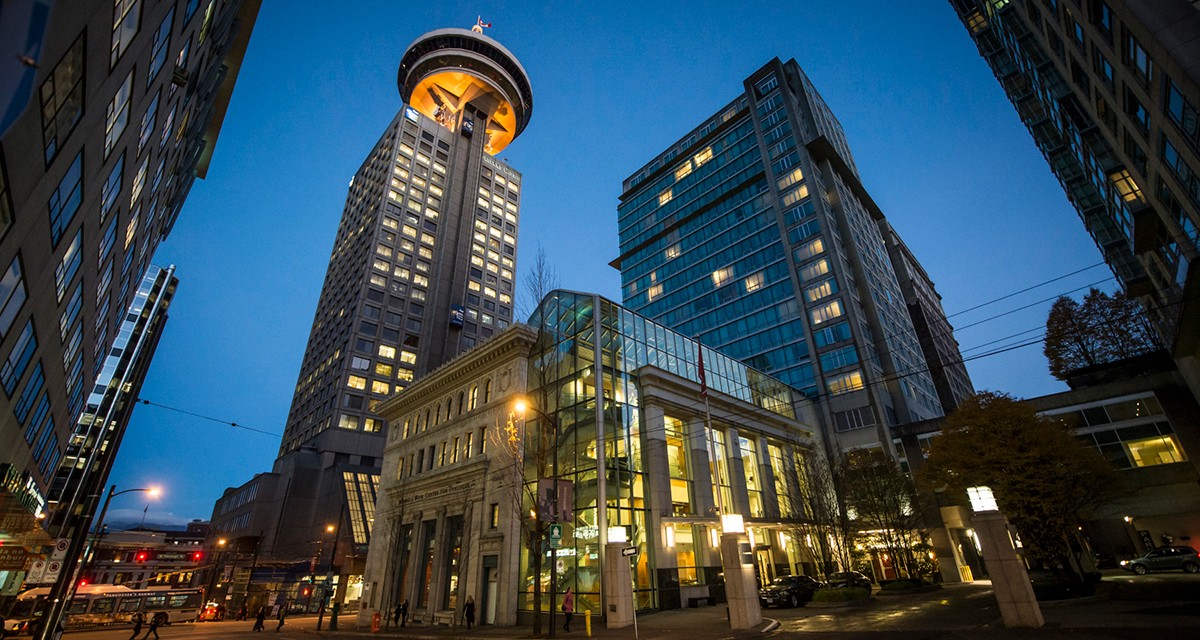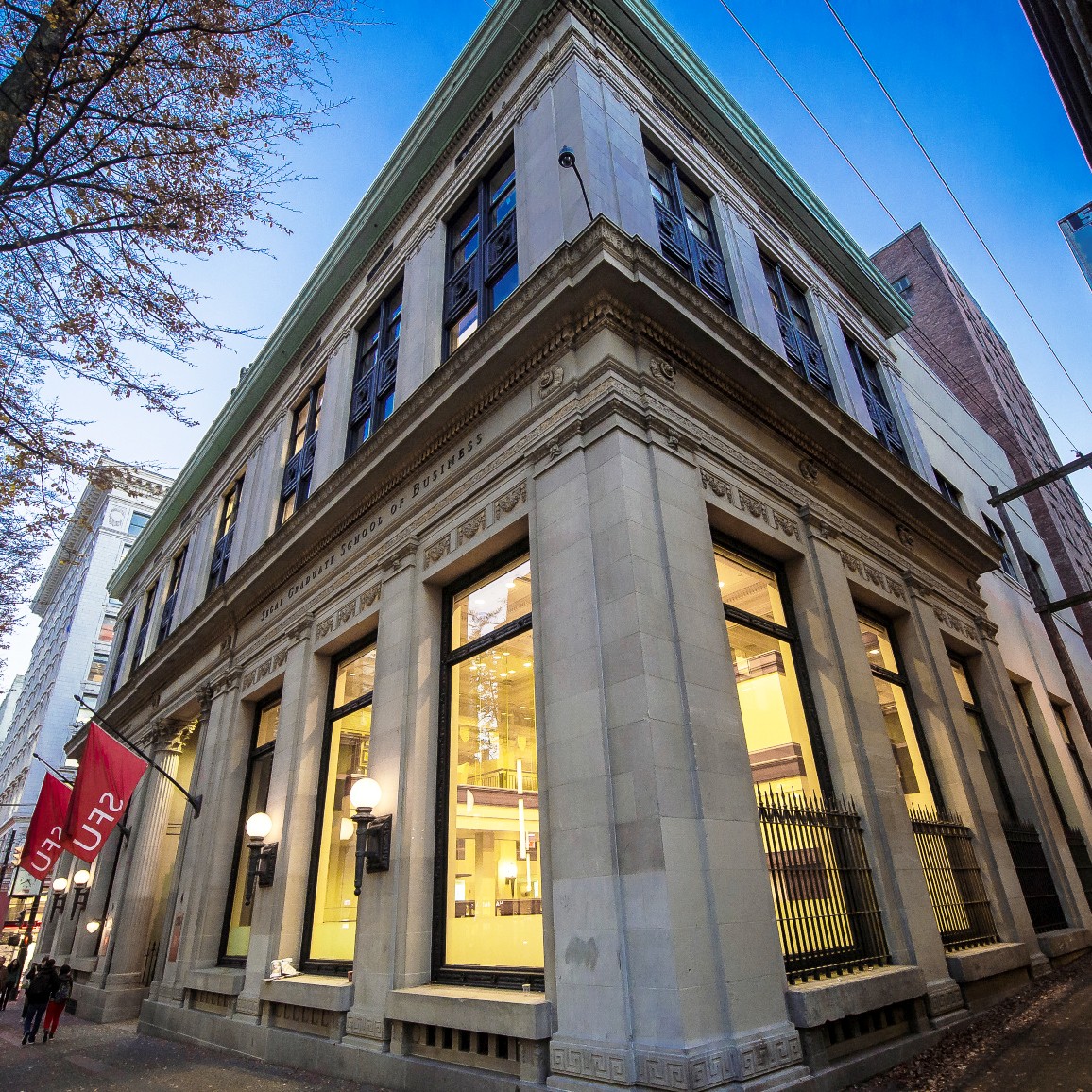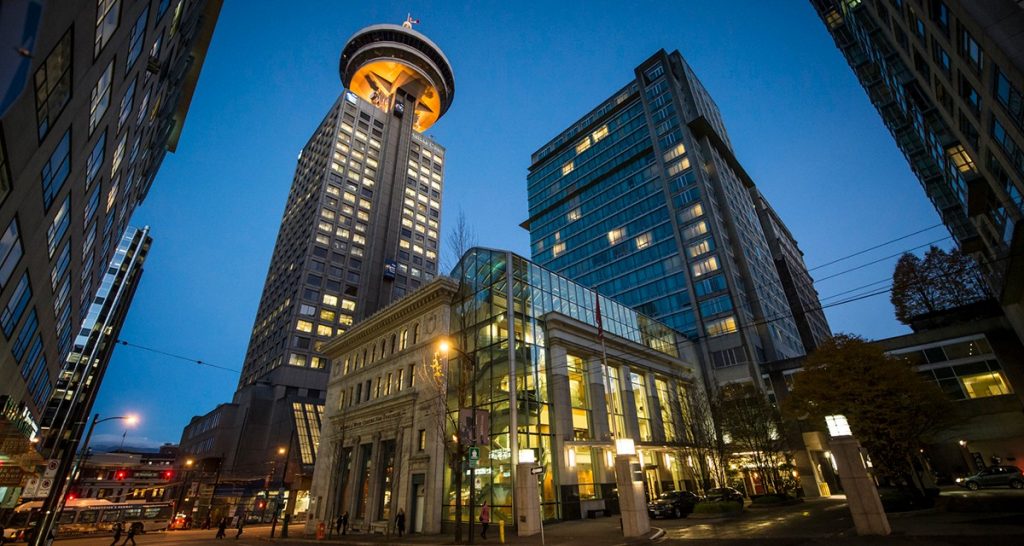
This is a lineup you won’t want to miss, with the City of Vancouver Director of Planning Gil Kelley in conversation with the Director of the School of Community and Regional Planning (SCARP) at UBC, Heather Campbell, and the Director of Simon Fraser University’s City Program, Duke of Data Andy Yan. Here’s one of the first times these three urban shape shifters have been on the same stage discussing what is going on in our place, and what policies are needed to move us towards a connected, housed, liveable city.
Moderator is Jen St. Denis, a local journalist that has been exploring the housing affordability issues in the region, and been on the pulse of business and politics surrounding city planning.
Called “Thinking Cities: Evidence in Policy, Knowledge in Action” this event takes place on Thursday March 5.
Date: Thursday, March 5, 2020, 7-9 pm (doors open at 6:30)
Place: SFU Segal Building, Room 1200
Admission: $5
You can follow this link to reserve your seat.Seating is limited, and appears to be selling out quickly.
You can read more about the presenters and the discussants below.
Presenters:
Susan Fainstein, Senior Research Fellow and formerly Professor of Urban Planning in the Harvard Design School. She previously taught at Columbia and Rutgers Universities and the National University of Singapore. She received the Distinguished Educator Award for lifetime career achievement from the Association of Collegiate Schools of Planning (ACSP) and the ACSP Davidoff Book Award for The Just City (Cornell University Press, 2010). Her writings focus on planning theory, urban theory, and urban redevelopment.
Norman Fainstein, President Emeritus and Professor Emeritus of Sociology and Urban Studies at Connecticut College. He has also held teaching and administrative positions at Columbia University, the New School, the City University of New York, Vassar College, the National University of Singapore, and most recently at the Harvard Graduate School of Design. He has published widely in urban planning, public policy and sociology. He received an S.B. from MIT in social and natural science and a PhD in political science.
Discussants:
Gil Kelley is an internationally recognized urban strategist and visionary, having served as Chief Planner for several West Coast cities and as an independent advisor to cities and governments across the globe. He currently serves as the General Manager of Planning, Urban Design and Sustainability for the City of Vancouver, British Columbia. In the past, he has served as the Director of Citywide Planning for the City of San Francisco, the Director of Planning for the City of Portland, OR and Director of Planning and Development for the City of Berkeley, CA. He has also maintained an independent planning consultancy and continues to advise cities and governments on a range of urban development strategies. Mr. Kelley did his graduate studies at the Massachusetts Institute of Technology and was awarded the Loeb Fellowship at Harvard University’s Graduate School of Design. He makes his home in Vancouver.
Heather Campbell is Professor and Director of the School of Community and Regional Planning at the University of British Columbia. Until 2018 she was Professor of Town and Regional Planning at the University of Sheffield. She is Senior Editor of the journal Planning Theory and Practice. She was elected a elected a Fellow of the Academy of Social Sciences in 2010. Her research interests focus on how public policy interventions concerned with cities and regions can produce more socially just outcomes, and how research can better support transformational change.
Andy Yan is the director of The City Program at Simon Fraser University. Born and raised in Vancouver, Andy Yan has extensively worked in the non-profit and private urban planning sectors with projects in the metropolitan regions of Vancouver, San Francisco, New York City, Los Angeles, and New Orleans. Andy is a registered professional planner with the Canadian Institute of Planners and a Certified Geographic Information Systems Professional. He is also an adjunct professor in Urban Studies at SFU as well as an adjunct professor in the School of Community and Regional Planning at the University of British Columbia.
Moderated by:
Jen St. Denis. Jen is a journalist whose work has appeared in the Tyee, the Toronto Star, the South China Morning Post and CTV online. Much of her work has focused Vancouver’s extremely unaffordable housing market, where multi-million penthouses co-exist with homeless tent cities just blocks away. She has also written about business, economics and politics.
Sponsor
The Larry Bell Urban Forum is made possible by a generous donation by Larry Bell to the Department of Geography at the University of British Columbia. A graduate of the Department of Geography and the Urban Studies Program at UBC, Larry Bell has made extraordinary contributions to Vancouver and British Columbia through a long and distinguished career. He has served as chair and CEO of BC Hydro, deputy minister of the Government of British Columbia, chair of the UBC Board of Governors, and as board member or chair for the Canadian Chamber of Commerce, the Vancouver Board of Trade, the Conference Board of Canada, the Vancouver Hospital Foundation, and the B.C. Transplant Society Board of Trustees. He received the Order of British Columbia in 2007.
Partners
The City Program, SFU Continuing Studies














Urban shape shifters? What exactly is that? What would be an example of a shifted shape that was caused by any of these individuals? Would not it be more appropriate to think of these people as urban thinkers? They seem heavy on ivory tower accolades and light on the reality of rising temperatures and the role that cities play in the process of environmental destruction. If we do not solve the carbon emissions problem, then all the other issues do not matter, it is just talk.
Jolson, cities also play a role in the solutions to climate change and environmental destruction. One need only look at voting patterns as a first clue, where urban people tend to vote for governments that have progressive social and environmental policies whereas rural people tend to vote for resource exploitative governments.
Some people in cities do put a high strain on the environment but the perception of cities being energy/resource pigs is also skewed by the reality that the wealthiest people tend to reside in cities and drive up the average footprint. On the other hand, carbon emissions are much lower among urban residents than suburban and rural ones. Carbon emissions are a pretty good proxy for much of what ails the environment. Furthermore, the denser one lives the less we need to encroach on nature.
Perhaps living off grid, growing your own food and making your own clothes and shoes is they best way to have the least impact but you’d be lucky to get a minute fraction of the population to choose to go for it. So it’s not a solution. The populations of the world are going in the exact opposite direction.
“cities also play a role in the solutions to climate change and environmental destruction”. So far the solutions if any are inconsequential. On balance carbon emissions continue to rise, they are only slowed by economic downturns such as the one caused by the coronavirus.
“ urban people tend to vote for governments that have progressive social and environmental policies whereas rural people tend to vote for resource exploitative governments.” Bogus statement without any evidence. How do Edmontonians vote?
“the wealthiest people tend to reside in cities and drive up the average footprint”. While the statement may possibly be true the effect is likely not even measurable. No sense of the scale of the problem.
“carbon emissions are much lower among urban residents than suburban and rural ones”. This statement is stuck on a false belief system. Commuters travel in many directions from many places.
“Carbon emissions are a pretty good proxy for much of what ails the environment.” OK, you got that right!
“the denser one lives the less we need to encroach on nature.” Have you ever seen an open pit mine, clear cut logging, the tar sands, etc. not to mention the numerous recreational machines invented for the sole purpose of escapism from the dense city much to the destruction of the natural environment?
“Perhaps living off grid, growing your own food and making your own clothes and shoes is they best way to have the least impact but you’d be lucky to get a minute fraction of the population to choose to go for it. So it’s not a solution.” So why did you bring it up?
Well, Jolson, it depends how you define cities. I don’t include sprawling suburbs myself. But even they are tending toward more density and mixed use.
https://news.berkeley.edu/2014/01/06/suburban-sprawl-cancels-carbon-footprint-savings-of-dense-urban-cores/
Several jurisdictions have reduced CO2 emissions without depending on economic downturns. Cities are leading the charge. Federal governments not so much because they are overly (and unfairly) weighted by rural votes.
You can’t just make stuff up and expect me not to call you on it. Zoom in to Edmonton.
https://newsinteractives.cbc.ca/elections/federal/2019/results/
Then take a little time to click on rural and urban results in general and you’ll get what everybody already knows.
Richer people emit more because they consume more and travel more. Where do they tend to live? There’s a reason you can get a big fancy house in the middle of nowhere for a couple hundred K or less but New York and London flats routinely go for tens of $millions.
Have you seen who works in open pit mines, clear cut logging sites and the tar sands? Rural people depend on that both for their goods and their employment. Urban people only for their goods. That fundamentally changes how one perceives the need to continue down that road. Meanwhile rural/small town housing is so cheap it’s not uncommon for people to have tonnes of toys because there’s nothing else to do. In cities only the richest can afford to own and store a lot of toys.
Urban residents might only occupy 30 square feet of ground space for their dwellings while rural residents might occupy 500 or more for theirs.
I brought it up because you hate cities so much and are aiming for everybody to live with as low a footprint as possible. A agree with the latter, of course, but just moving to the country won’t do it.
I posted a rather time consuming and researched response to Jolson with a few links. It came up under “awaiting moderation” which I assumed was because of the links. So where did it go? I hate wasting my time. I’m not going to bother again but none of his comments stood up to scrutiny.
I will suggest he google the CBC election results interactive map to see why his “bogus statement” comment is itself bogus.
He’s just angry because there’s no White History Month and no International Men’s Day. The target of his ire is arbitrary and obviously inconsequential. Don’t sweat it.
Ideas are a dime a dozen, but where are the ideas?
Right now one can purchase in Vancouver a 12v lithium ion 2.0 Ah power pack and heated quilted jacket for $250. Now, an emissions reduction engineer bent on making a big change might take this bit of information, this idea of heated jackets, and expand the heated clothing market into everyday complete body fashion wear, armour for climate change. No longer would we have to heat buildings for human comfort when all we need to do is wear heated clothing. As a matter of fact, you would not really need to live inside, you can save the rent and move into a tent, somewhere ………I’d be partial for waterfront, it’s the best of both worlds, land and ocean.
A design response unlike talk, talk, talk is the appropriate response to carbon emissions. A design response is a creative act, it is the resolution of conflicting forces that results in a new invention, a new way of doing things.
We have a shortage of ideas, a shortage of emissions reduction design engineers that can make a difference. One of the best ways to solve this type of problem is with calls for proposals, ideas competitions for the redesign of everything that is carbon emitting. This is an area of activity in which planners could step in and provide the leadership that is necessary to get to zero in cities, a new and necessary term in every design calculation and budget expenditure. Let’s have some energy and excitement around this challenge that we are all facing.